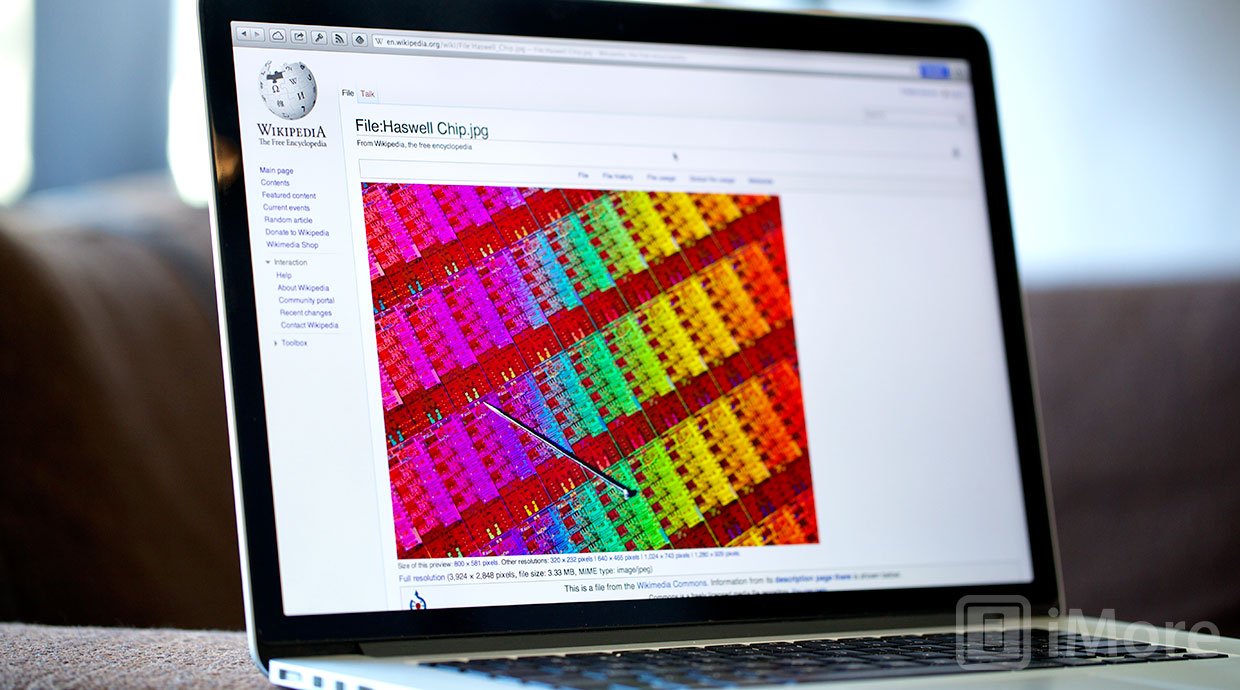What will Intel's new Haswell chipsets really mean for the Mac?

Rumors suggest that Apple may refresh the MacBook Pro line this summer with Intel's Haswell microprocessor. Accepting for a moment that the rumors are true, what is Haswell all about, and why is it important?
Haswell will succeed the Ivy Bridge microprocessor architecture that Apple's current product line is largely based around. The lamentably ancient Mac Pro is the sole holdout: it's built around a server-class microprocessor architecture Intel internally called Westmere.
The timing Intel will formally unveil the Haswell processor family at Computex, a major PC trade show in Taipei, on June 3rd. Only a few days later Apple will host its annual Worldwide Developers Conference (WWDC) in San Francisco.
Apple certainly has cause to look closely at Haswell chips. Power efficiency is key to some of the Haswell designs specifically aimed at laptops and Ultrabook-style computers, and integrated graphics in Haswell chips also provide up to twice the graphics performance. MacBook Pro models with Retina Display push a lot of pixels, and you can feel the strain at high resolutions on current machines equipped with Intel HD4000 (though the 15-inch model has a discrete Nvidia GTX processor that it will fall back to when graphics performance demand it). And graphics aren't the only improvement for Haswell. CPU performance can improve dramatically depending on which chips are being used.
Thunderbolt performance in a Haswell-equipped Mac will remain unchanged - the next version of Intel Thunderbolt controller architecture, code-named "Falcon Ridge," won't make landfall until 2014. But Haswell systems will sport better power efficiency and on-chip integration, which may help move along the widespread adoption of Thunderbolt as an essential peripheral interface in the years to come.
A Haswell refresh to the MacBook Pro line would make sense - Apple refreshed the MacBook Air and MacBook Pro in June 2012, at WWDC, and introduced the first MacBook Pro with Retina Display at the same time. While the Pro was later refereshed, it's appealing to believe that Apple would use WWDC to stir the pot with a refresh to its best-selling computers. There's a potential wrench in the works, though: Tim Cook cautioned analysts during the company's most recent quarterly financials call that "amazing new hardware, software and services" shouldn't be expected until this fall and throughout 2014.
Ultimately, we'll have to wait and see what, if anything, Apple has up its sleeve hardware-wise for WWDC this year, and hope that a Haswell-based referesh is in the works. Because there's strong interest in Haswell across the PC marketplace, and Haswell-based systems, including Ultrabooks, will undoubtedly fill the channel shortly after Intel's Computex announcement. Apple can't afford to fall behind the curve with Macs that use outdated hardware, especially models as popular as the MacBook Air and MacBook Pro.
Master your iPhone in minutes
iMore offers spot-on advice and guidance from our team of experts, with decades of Apple device experience to lean on. Learn more with iMore!
Are you waiting on new Mac hardware? What do you want to see?

